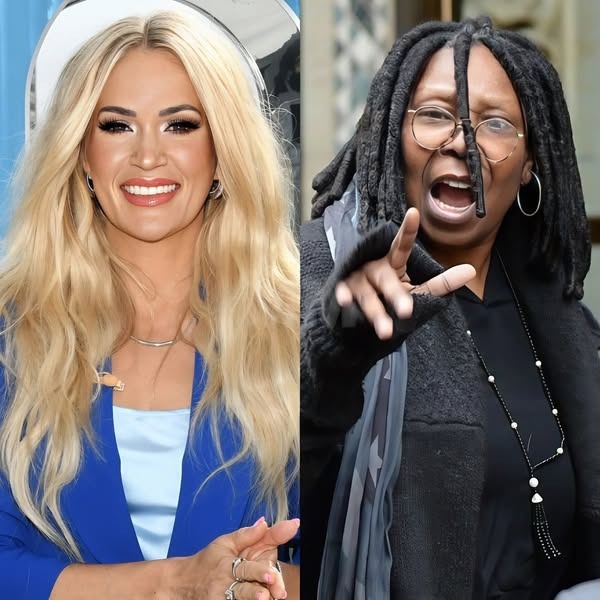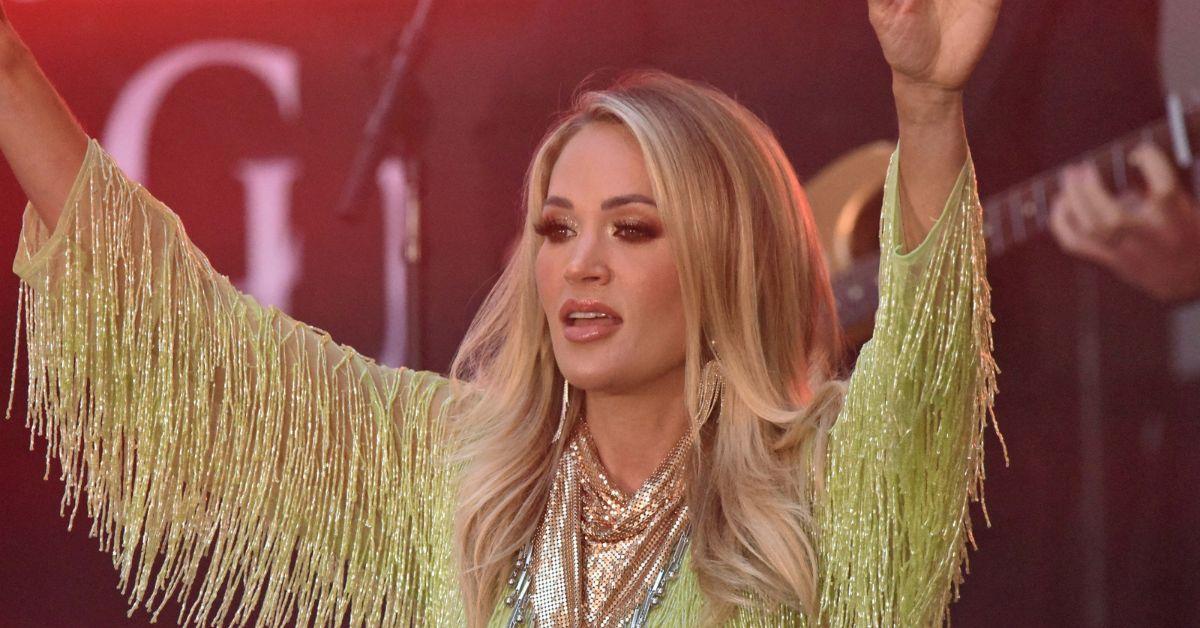
In today’s media-driven landscape, where headlines are shared in seconds and commentary spreads at lightning speed, the line between entertainment, news, and public opinion continues to blur. A recent wave of viral claims involving country music icon Carrie Underwood and the long-running talk show The View has reignited discussions about media responsibility, celebrity reputation, and the influence of talk shows on public discourse.
While reports alleging that Underwood filed a lawsuit demanding the shutdown of The View have been circulating online, there is no credible evidence or official record to support such claims. Still, the controversy—real or rumored—has sparked a broader conversation: what happens when celebrities and talk shows clash, and what are the ethical boundaries for public commentary on public figures?
A Media Buzz That Won’t Die Down
The claim that Underwood is taking legal action against the hosts of The View quickly gained traction across social media platforms, with headlines claiming she accused the show of spreading misinformation and damaging her reputation. Though these stories have since been debunked by multiple fact-checking sources, the viral nature of the content highlights how quickly narratives can take hold online—even when they lack substantiation.
Carrie Underwood, known for her Grammy-winning music career and clean public image, has rarely been associated with public controversies. Her name trending alongside legal drama and network shutdowns was enough to fuel online speculation, and in the process, amplify questions about the media’s role in shaping narratives around high-profile individuals.
Talk Shows, Commentary, and the Power of the Panel

The View, now in its 28th season, is no stranger to controversy. The daytime show, hosted by a rotating panel of influential women, is built on spirited conversation, bold opinions, and sharp takes on current events, pop culture, and politics. That format has brought both critical acclaim and public backlash over the years.
Commentary about celebrities is common on talk shows. Sometimes it’s lighthearted, sometimes critical, and occasionally it toes the line between opinion and speculation. For public figures like Underwood, this kind of attention is part of a larger conversation about the responsibilities talk show hosts hold when discussing individuals who aren’t present to respond.
The concern many fans express—especially when celebrities are criticized without context—is how such narratives affect reputations. Whether about personal decisions, relationships, or career moves, the commentary can quickly be interpreted as fact by casual viewers.
Celebrity Reactions and Legal Realities

Historically, celebrities have taken various approaches to handling public commentary—some ignore it, others respond via social media, and a few pursue legal action when they believe the statements cross into defamation.
To succeed in a defamation suit in the United States, a public figure must prove not only that a statement was false and damaging, but also that it was made with “actual malice” — a legal standard that requires showing the speaker knew the information was false or acted with reckless disregard for the truth.
This high bar is intentional, designed to protect freedom of speech and the media’s ability to critique public figures. As such, lawsuits against talk show hosts or networks over commentary are rare, difficult to win, and usually avoided unless a clear case of malicious intent can be established.
So far, no such case has been filed by Carrie Underwood, and her representatives have not made any public statements suggesting legal action is underway.
What This Viral Moment Teaches Us About Media Literacy

Even though the story of Underwood suing The View is fictitious, its rapid spread speaks volumes about the current state of media literacy—and the public’s appetite for celebrity news mixed with controversy.
Why do such stories go viral? Part of it may be due to the ongoing polarization of media. As viewers increasingly seek confirmation of their existing beliefs, viral stories—especially those targeting prominent figures or polarizing programs—are shared quickly and widely, regardless of their authenticity.
This cycle makes it crucial for readers and viewers to critically evaluate the sources of their news. Is the outlet reputable? Is there more than one reliable source confirming the story? Are public statements or legal documents cited? In the case of the Underwood-View lawsuit rumor, the answers to these questions are telling: the story was based on speculation, and reputable outlets have not reported it.
The Role of Celebrities in Shaping the Conversation

While the original rumor may not be true, Carrie Underwood’s reputation for grace and professionalism offers an example of how celebrities can remain above the fray—even when their names are attached to online controversies.
She has not responded publicly to the rumors, which some media analysts interpret as a strategic choice. By refusing to engage with unverified claims, celebrities can often avoid further amplifying false narratives. However, that approach isn’t always enough—particularly when online misinformation spreads faster than corrections or fact-checks.
This puts more pressure on platforms, publishers, and talk show hosts alike to uphold standards of accuracy and fairness, even in opinion-driven formats.
A Moment to Reflect on Media Ethics and Free Speech
As the dust settles on the Underwood-View rumor, one thing remains clear: public interest in media accountability is growing. Whether it’s fans demanding respectful treatment of celebrities or viewers calling for fact-based discussions, the expectations for media figures continue to rise.
And while freedom of expression remains a cornerstone of American media, so too does the expectation that platforms, hosts, and publishers will handle that freedom with care.
This doesn’t mean talk shows should become dull or sanitized—it means that as influence grows, so does responsibility.
Final Thoughts: Beyond the Headlines
While Carrie Underwood has not sued The View, the speculation around it has inadvertently opened the door to a more meaningful conversation—one that goes beyond headlines and hashtags.
As consumers of media, we have a responsibility to question what we read, verify the facts, and recognize the human impact of viral content. And as creators, hosts, and publishers, the challenge is to strike a balance between engaging content and ethical storytelling.
In the end, stories like this—whether true, exaggerated, or entirely fabricated—remind us how powerful media narratives can be. And how important it is that we get them right.




